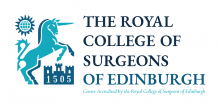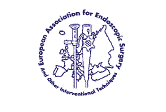This course has been awarded 20 CPD Points by the Royal College of Surgeons Edinburgh. Aimed at Upper GI surgeons and senior trainees who wish to learn more about laparoscopic approaches to the GI system, you must have completed an Intermediate Skill for Laparoscopic Surgeons Course before attending this Advanced Course (you will be asked to send evidence).
Surgical Skills Centre, Level 5, Ninewells Hospital, Dundee, Scotland.
Re-imbursement Details
Initially you will pay the full course fee £1800, KARL STORZ are kindly sponsoring this course and will reimburse half of the course fee after attending (£900). Travel and accommodation are not reimbursed.
In order to obtain the funding you must agree to your contact details being forwarded to Karl Storz.
KARL STORZ will allow you to attend one EAES Upper Course and one EAES Lower Course only, you will not be reimbursed if you apply and attend the course again. You can only book onto one EAES Laparoscopic course within a 12 month period.
Faculty (selected from):
Mr Francesco Polignano - Course Director
Professor Luigi Boni
Professor Abe Fingerhut
Mr Pradeep Patil
Mr Afshin Alijani
Mr Benjie Tang
Mr Stuart Oglesby
Samer Zino
Tarek Katbeh
Andrew Robertson
Himanshu WADHAWAN
Students
Suitable attendees are surgical trainees (SPR 5-6) and consultant surgeons who have extensive experience of conventional upper GI procedures and are already undertaking routine laparoscopic cases (cholecystectomy, diag. lap., lap appendix). There will be a maximum of 20 places available on each course, with 2 courses running each year. EAES members will receive a 10% discount.
Selection Criteria
Candidates should be at the point of commencing practice of some of the procedures to be covered in the course, with appropriate supervision/ mentorship.
Content
This will be a very intensive, practical skills course where attendees will master a variety of tissue approximation techniques. The following laparoscopic procedures will be rehearsed in the skills laboratory: Laparoscopic suturing, laparoscopic repair perforated duodenal ulcer, total fundoplication, laparoscopic common bile duct exploration, laparoscopic gastroenterostomy and bariatric surgery. There will also be several expert sessions covering aspects of advanced upper GI surgery involving clinicians from across Europe, with a live operative demonstration.
The course provides
'hands on' experience
individual tuition and feedback
evolving practice
clear explanations and guidelines
discussion sessions
live operative demonstration
Laparoscopic fundoplication
Clinical applications of indocyanine green (ICG) enhanced fluorescence in laparoscopic surgery
Learning Outcomes
At the end of this practical training course you should be able to:
Explain the techniques necessary to overcome the visual demands in laparoscopic surgery
Demonstrate effective equipment and instrument positioning using ergonomic principles
Describe some of the new technologies available for laparoscopic energised dissection
Tie a tumbled square knot using laparoscopic instruments to safely ligate a vessel
Handle a 3/8ths curved needle and an endoski needle and make a bite through tissue
Form a surgeon's knot using laparoscopic needle holders
Demonstrate optimal bite placement and knot tying technique during laparoscopic tissue approximation
Apply the component skills taught in this course to various procedures including sutured gastroenterostomy, laparoscopic fundoplication, repair of perforated duodenal ulcer, common bile ductal exploration (CBD) and gastric bypass.

![]()


Find out more about the EAES by visiting their website
